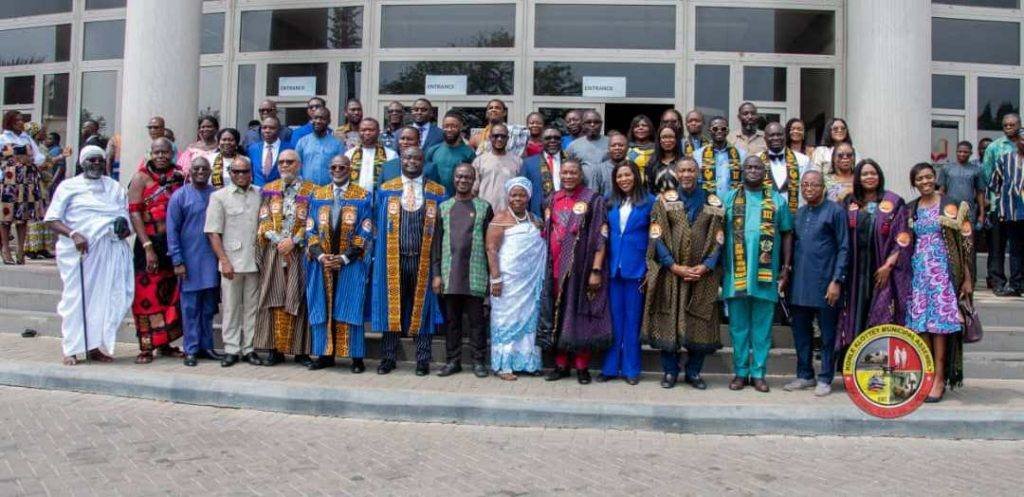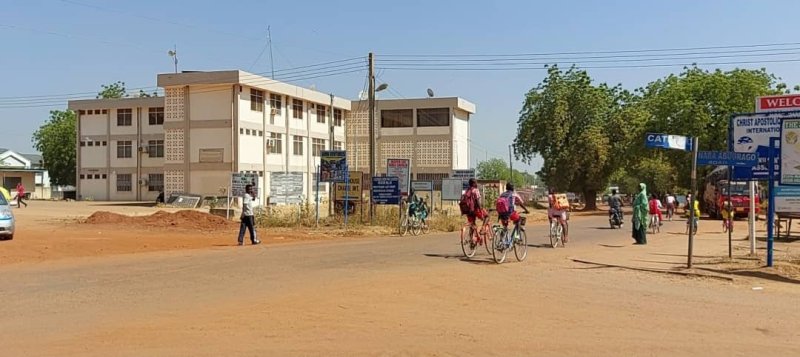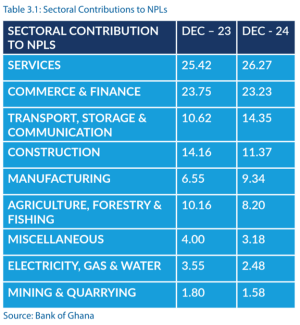
The Ministry of Local Government and Rural Development (MLGRD) sees the Metropolitan, Municipal and District Assemblies (MMDAs) as the fulcra of the government's rural development agenda and would therefore not wait for their operations to go haywire before taking the necessary corrective measures.
Pragmatic, prompt and workable solutions to the challenges confronting the MMDAs are consequently being consistently evolved and systematically applied to nib them in the bud. The objective is to discourage the MMDAs from indulging in the practice of citing challenges as excuses for non-performance.
The MLGRD's positive stand perfectly espoused by the Deputy Minister in charge of Rural Development and Agriculture, Mr. Augustine Collins Ntim at the commencement of a nation-wide monitoring and assessment tour of MMDAs sits well with its avowed determination to ensure that they deliver on their mandate of implementing government policies and programmes aimed at improving the lot of the people.
And that is understandable for under the Akufo-Addo administration's rapid development agenda, the bulk of its package of economic and agricultural interventions and initiatives find expression at the district level where actual implementation takes place. The MMDAs, as drivers of these programmes, can therefore not afford to take a back seat. They need to position themselves properly to be able to deliver, effectively and efficiently too.
"Under the leadership of Hajia Alima Mahama, MLGRD won't countenance the business as usual attitude of some MMDCEs and Heads of Decentralized departments. The government's task of promoting rapid rural development must be achieved at all cost", says Mr. Collins Ntim.
"A stitch in time", it is often said, "saves nine", just as "prevention is better than cure" so the MLGRD's move to regularly assess the readiness of MMDCEs in particular and MMDAs in general to deliver on the mandate assigned them comes in handy.
The argument is that once the MMDAs are resourced and their knotty challenges addressed, there is no earthly reason why they can't effectively drive the rural development agenda.
The MLGRD's monitoring and performance assessment programme will, no doubt, make the MMDCEs sit up and Heads of Decentralized departments kept on their toes for the simple reason of being collectively held responsible for any infractions, shortfalls or shortcomings of their Assemblies.
The MMDAs are, under the monitoring and performance assessment programme, being quizzed on some specific issues ranging from agriculture, education, health, sanitation, compliance with statutory provisions, internal revenue generation and utilization to the implementation of the government's flagship programmes.
Of critical significance to the government are the largely pro- poor agricultural programmes, specifically the Planting for Food and Jobs (PFJ), Planting for Export and Rural Development(PERD), Rearing for Food and Jobs (RFJ), Rice cultivation initiative, Modernization of Agriculture in Ghana(MAG) and District Centre for Agriculture, Commerce and Technology(DCACT) all geared towards boosting food and agricultural production, economically empowering rural folks, predominantly farmers, speeding up rural development and providing raw materials for industries.
The PFJ, a major landmark intervention rolled out in April 2017 by the Ministry of Food and Agriculture (MOFA) to address food security and improve household and family sustenance, tops the list with PERD, RFJ, Rice cultivation, MAG and DCACT as vital appendages to cushion increased agricultural production.
MLGRD joining hands with MOFA designed PERD as a 5-year strategic decentralized national tree crop development programme to ease the country's over- dependence on cocoa, targeting the development of the value-chains of some selected crops namely cashew, oil palm, citrus, coffee, cotton, coconut, mango, rubber and shea.
It however places premium emphasis on positioning Ghana as a leading world producer of cashew within the next 5 - 10 years in addition to creating a sustainable raw material base to ginger up the decentralized industrialization drive through the One-District-One-Factory initiative.
On the rice cultivation initiative, the country seeks to boost rice production with the goal of achieving self-sufficiency by the year 2025 while MAG is tailored at improving production efficiency, attaining food security and profitability for farmers, thus culminating in significantly enhancing agricultural productivity.
DCACT being established in all the districts is classified as an institutional mechanism at the district level to co-ordinate and harmonize all commercial, entrepreneurial and agricultural initiatives towards achieving viability and sustainability of economic development as well as job creation at the district level.
In fact, it has been labeled as the repository of data on all government flagship programmes at the district level, providing real time, data and updates to monitor the progress of interventions in addition to guiding both public and private investor decision-making.
To all intents and purposes, the government through the introduction of a plethora of interventions and initiatives has drummed home its resolve to vigorously pursue an accelerated rural development agenda and improve the welfare of rural dwellers.
What the MMDCEs need to do is to demonstrate ample leadership towards the successful implementation of these programmes. The least the under-performing ones can and must do is to buck up or bow out. Simple.
Read Full Story

















Facebook
Twitter
Pinterest
Instagram
Google+
YouTube
LinkedIn
RSS